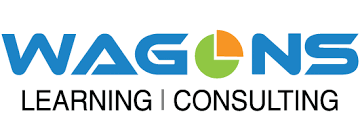
₹ 131200
₹78- ₹82
1600
₹
-0

6 May 2025
8 May 2025
9 May 2025
Application Details
Wagons Learning IPO is a bookbuilding of Rs 38.38 crores. The issue is a combination of fresh issue of 30.80 lakh shares aggregating to Rs 25.26 crores and offer for sale of 16.00 lakh shares aggregating to Rs 13.12 crores.
Wagons Learning IPO bidding opened for subscription on May 2, 2025 and will close on May 6, 2025. The allotment for the Wagons Learning IPO is expected to be finalized on Wednesday, May 7, 2025. Wagons Learning IPO will be list on BSE SME with a tentative listing date fixed as Friday, May 9, 2025.
Wagons Learning IPO price band is set at ₹78 to ₹82 per share. The minimum lot size for an application is 1600. The minimum amount of investment required by retail investors is ₹1,24,800. But it is suggested to the investor to bid at the cutoff price to avoid the oversubscription senerio, which is about to ₹1,31,200. The minimum lot size investment for HNI is 2 lots (3,200 shares) amounting to ₹2,62,400.
About Wagons Learning Limited
Incorporated in 2013, Wagons Learning Limited is engaged in providing corporate training, digital learning, and skill development solutions. The company operates on a B2B model, offering services such as training and certifications, digital learning (LMS/LXP), skill development, trainer outsourcing, and payroll management.
Key Service Verticals:
- Corporate Learning & Development
- Digital Learning Solutions (LMS, LXP, Content Development, Digital Library)
- Skill Development & CSR Implementation
- Trainer Outsourcing & Payroll Management
Wagons Learning specialises in sales training, customer service, soft skills, behavioural, functional, and knowledge-based training across industries like automotive, banking and financial services, pharma, and healthcare. The company is NSDC-certified under the Skill Sathi program (valid till January 4, 2027) and has trained over 500,000 professionals through classroom, virtual, and digital modules.
Wagons Learning serves clients across India and has expanded internationally with a branch office in Dubai, UAE, offering education technology solutions, digital libraries, government project execution, and content development. The company is also entering the B2C space by launching industry-ready certification courses.
FAQ
IPO stands for "Initial Public Offering." It's the process through which a privately-held company becomes publicly traded by offering its shares to the general public and listing them on a stock exchange for trading. This allows the company to raise capital from investors and grants individuals and institutions the opportunity to invest in and own a portion of the company.
The life cycle of an IPO, or Initial Public Offering, begins with a company's decision to go public. It involves hiring underwriters, registering with regulatory authorities, determining the IPO price, marketing to investors, and the subscription period where investors place orders for shares. After allocation and listing, shares become publicly tradable, and the company enters the secondary market. Ongoing reporting and corporate governance are crucial as the company continues to operate as a publicly-traded entity. The IPO aims to raise capital for growth and provides investors with opportunities to trade shares in the company.
An IPO (Initial Public Offering) is when a private company goes public by selling shares to the public. Investors buy these shares, giving them ownership in the company. It's a way for companies to raise capital and expand. The process involves underwriters, regulatory filings, setting the IPO price, and marketing to investors. After the IPO, shares can be traded on a stock exchange. IPOs offer opportunities and risks, so investors should research and consider carefully.
"Upcoming IPOs" refers to initial public offerings that have been announced by private companies but have not yet occurred. These are companies that plan to go public in the near future by issuing shares to the public and listing them on a stock exchange. Investors often keep an eye on upcoming IPOs as they represent opportunities to invest in companies at their early stages of public trading, potentially capturing growth potential. These offerings are typically accompanied by significant media and investor attention as they approach their launch dates.
 Download
Download